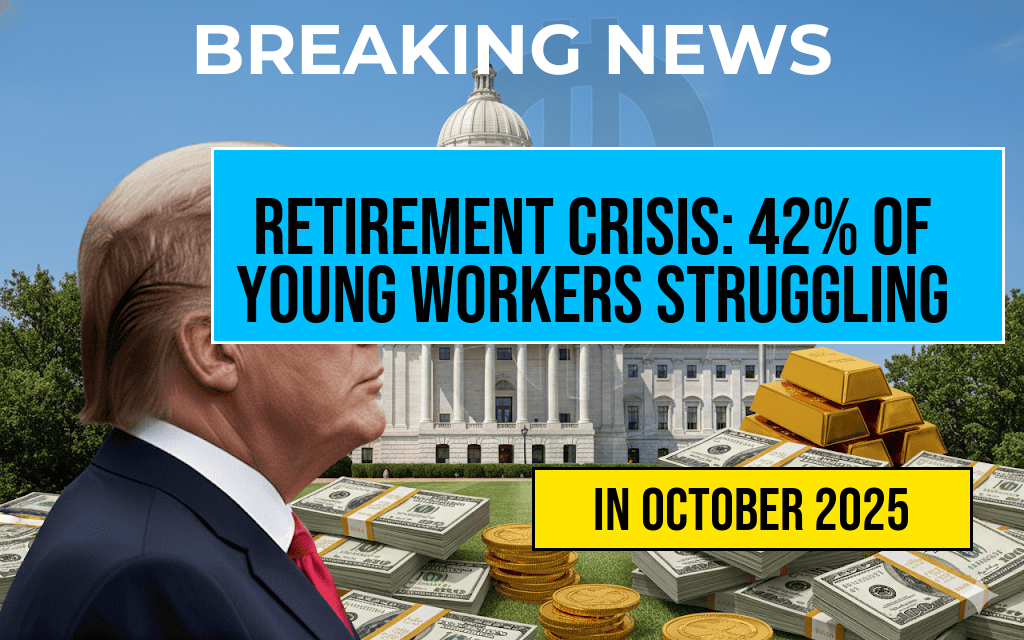Nearly two-thirds of Americans express greater concern about outliving their savings than facing death itself, according to a recent survey conducted by the National Financial Confidence Study. This statistic underscores the growing anxiety among U.S. households about their financial security in retirement, especially as life expectancy continues to increase and traditional pension plans become less common. The survey, which polled over 2,000 adults across diverse demographics, revealed that 64% of respondents are more worried about depleting their financial resources during old age than the prospect of mortality. This shift in perspective highlights the pressing need for effective retirement planning and the importance of financial literacy, as many Americans feel ill-prepared to manage prolonged periods of income scarcity amid rising healthcare costs and economic volatility.
Financial Anxiety Outpaces Fear of Death Among U.S. Adults
Understanding the Roots of Retirement Fears
Several factors drive the heightened concern about outliving savings. Foremost among them is the uncertainty surrounding the adequacy of retirement funds in the face of longer lifespans. According to data from the Social Security Administration, the average life expectancy in the United States now exceeds 78 years for men and 81 years for women, with some individuals living well into their 90s and beyond. This longevity trend necessitates larger savings pools, yet many Americans report insufficient preparation.
Compounding this issue is the decline of employer-sponsored pensions, which historically provided a steady income stream during retirement. Today, fewer workers have access to defined-benefit plans, shifting the burden onto individual savings accounts like 401(k)s and IRAs. However, recent studies indicate that a significant portion of Americans lack adequate savings, with the Federal Reserve reporting that about 40% of adults have less than $400 in emergency funds.
Implications for Retirement Planning and Policy
This widespread apprehension has prompted policymakers and financial advisors to emphasize the importance of early and consistent savings, diversified investment strategies, and comprehensive retirement planning. Experts warn that without proactive measures, many individuals risk financial hardship in their later years, potentially relying on social safety nets that may not fully cover their needs.
Moreover, the survey highlights disparities based on age, income, and education levels. Younger adults and lower-income households tend to express higher levels of concern about outliving their savings, reflecting broader economic inequalities and a lack of access to financial education.
Challenges in Ensuring Financial Security for Retirement
Healthcare Costs and Inflation
Rising healthcare expenses remain a primary concern for those worried about financial depletion. As medical costs continue to outpace general inflation, retirees face the risk of substantial expenses that can erode savings quickly. The U.S. healthcare system presents ongoing challenges for planning, especially since Medicare does not cover all medical costs, and out-of-pocket expenses can be significant.
Economic Volatility and Market Fluctuations
Market downturns and economic shocks can also threaten retirement funds. The 2020 COVID-19 pandemic demonstrated how quickly financial markets can decline, impacting retirement accounts worldwide. Many Americans remain vulnerable to such swings, emphasizing the need for resilient investment portfolios that balance growth and risk mitigation.
Retirement Savings Strategies and Resources
| Account Type | Tax Benefits | Contribution Limits (2023) | Withdrawal Restrictions |
|---|---|---|---|
| 401(k) | Tax-deferred | $22,500 (under 50), $30,000 (50 and over) | Penalties for early withdrawal before age 59½ |
| IRA | Traditional: Tax-deferred; Roth: Tax-free | $6,500 (under 50), $7,500 (50 and over) | Early withdrawal penalties apply; specific rules vary |
| Health Savings Account | Tax-free contributions and withdrawals for medical expenses | Varies; high-deductible health plan required | Penalties for non-medical withdrawals before age 65 |
Addressing the Retirement Savings Gap
Policy Initiatives and Employer Involvement
To bridge the savings gap, recent policy proposals aim to expand access to retirement accounts through measures such as automatic enrollment in employer-sponsored plans and incentivizing small businesses to offer retirement options. The Department of Labor has also emphasized improving financial literacy through workplace programs and public campaigns.
Individual Actions and Financial Education
Financial experts recommend that individuals prioritize saving early, take advantage of employer matching contributions, and seek advice from certified financial planners. Building a diversified portfolio tailored to one’s risk tolerance and retirement timeline is crucial for achieving financial security and alleviating fears of outliving savings.
The Role of Technology and Innovative Solutions
Emerging financial technology platforms are making it easier for Americans to automate savings, monitor investments, and access personalized retirement planning tools. These innovations aim to empower individuals to take control of their financial futures and reduce anxiety related to retirement preparedness.
As the landscape of retirement planning evolves, addressing the psychological dimension of financial security becomes as vital as the tangible assets accumulated. Ensuring that Americans are equipped with the knowledge, tools, and policies to secure their financial independence remains a critical challenge for policymakers, financial institutions, and individuals alike.
Frequently Asked Questions
What is the main concern among Americans regarding their financial future?
Many Americans are primarily worried about outliving their savings more than about death. This fear reflects concerns over financial security during retirement and the ability to maintain their lifestyle in later years.
What percentage of Americans fear outliving their savings?
Approximately two-thirds of Americans express fear about outliving their savings, highlighting a widespread concern about financial preparedness for retirement.
Why do many Americans worry more about financial longevity than death?
Many Americans believe that insufficient savings could lead to financial hardship in old age, making the fear of outliving their money more pressing than the fear of death itself.
How does this fear impact Americans’ retirement planning?
This concern motivates many to save more, invest cautiously, and consider long-term financial strategies to ensure their funds last throughout retirement.
What can be done to alleviate fears about outliving savings?
Engaging in comprehensive retirement planning, consulting with financial advisors, and exploring annuity options can help Americans feel more secure about their financial future.










